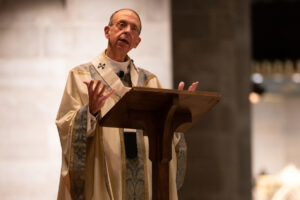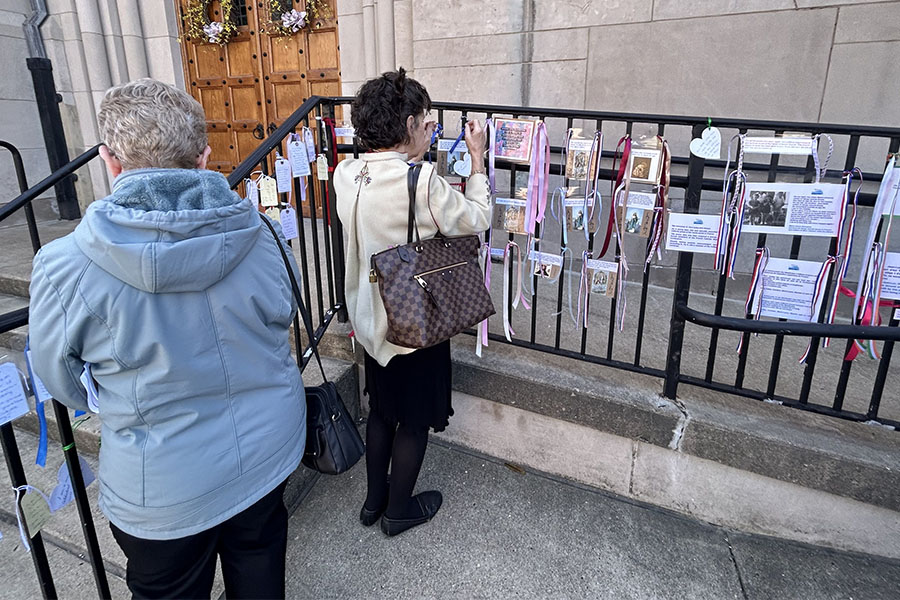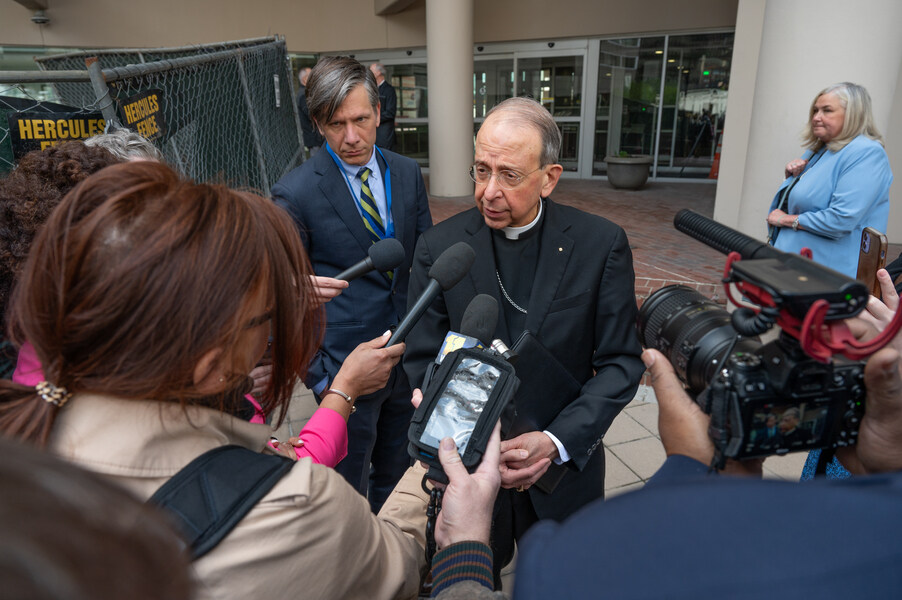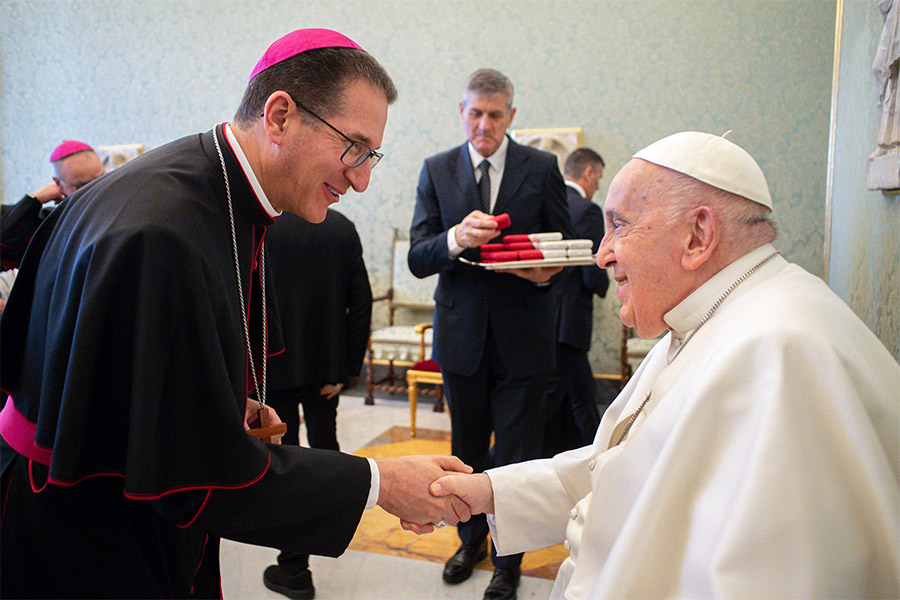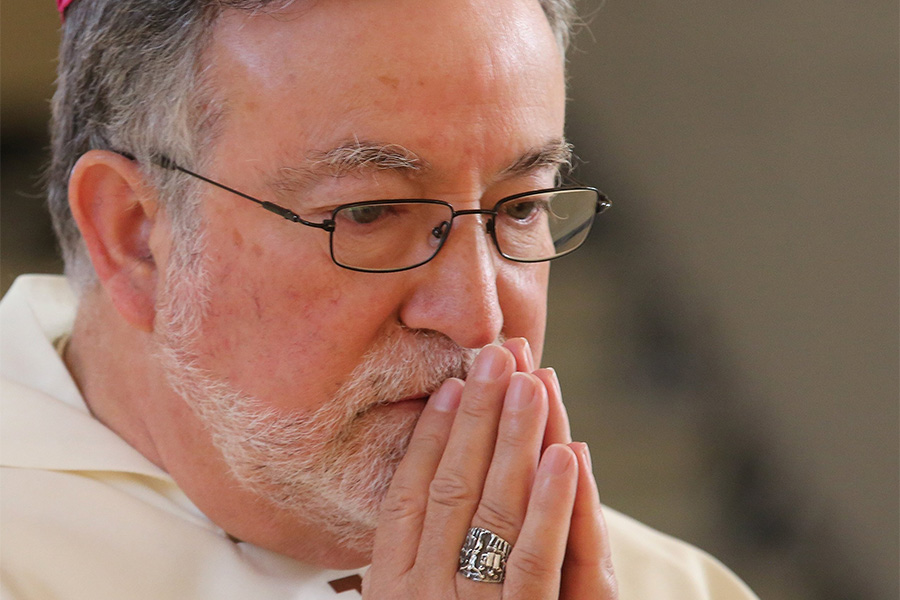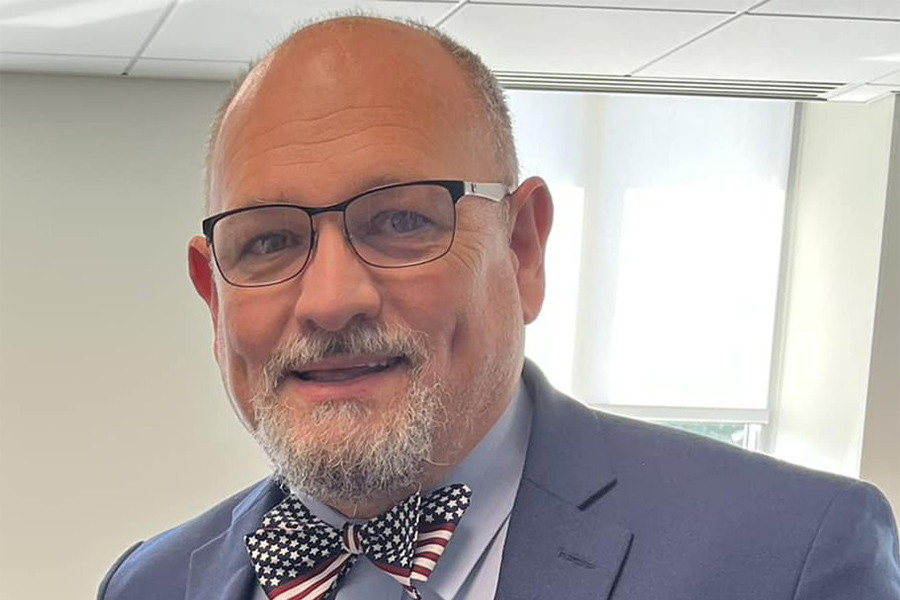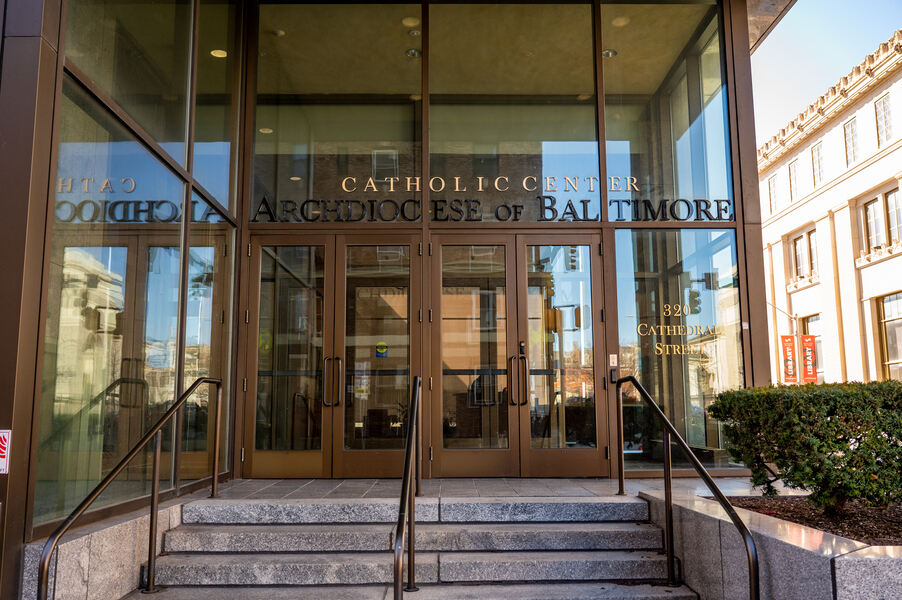The Archdiocese of Baltimore reaffirmed its commitment to transparency regarding child sexual abuse by clergy and said that it would not oppose the public release of a report by Maryland Attorney General Brian E. Frosh detailing abuse within the archdiocese over the last eight decades.
The attorney general filed a motion in the Circuit Court for Baltimore City Nov. 17 to release the 456-page report, in which his office said it had identified 115 priests who were prosecuted for sex abuse and/or identified publicly by the archdiocese as having been credibly accused of sexual abuse, and 43 more priests accused of sexual abuse but not yet publicly identified by the archdiocese.
The motion said the investigation identified more than 600 victims since the 1940s.
A statement released Nov. 22 by the archdiocese said, “We believe that transparency is necessary to rebuild the trust that has been damaged by evil acts of abuse committed by representatives of the church and by historic failures of church leadership to respond adequately to those acts. Transparency should also include a responsible and accurate reporting of events – both events that are shameful for the church as well as events that demonstrate progress in taking new and important steps to protect children and provide assistance to survivors.”
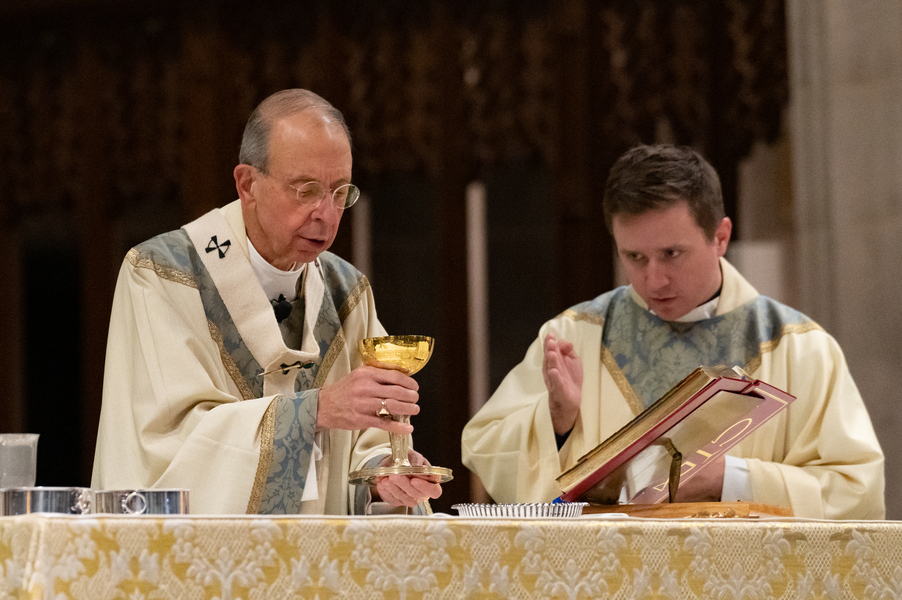
It said the archdiocese as described in the attorney general’s motion does not depict how the archdiocese operates today. The statement noted that Frosh admitted this in an interview on WYPR radio’s “On the Record” with host Sheila Kast, responding to a question of whether he believes the archdiocesan cover-up is over by saying, “To the best of my knowledge, it is.
“The church changed its policy dramatically in 2002 and the law by that time had mandated reports of child abuse and the church has since then, as far as we can tell, since then followed the law, reported child sexual abuse when it was reported to them,” Frosh said in the interview.
The archdiocesan statement said, “We are different – different than we were in the past – yet we must be transparent in acknowledging our past. To that end, the Archdiocese of Baltimore will not oppose the public release of the attorney general’s report.
“We take this position even though we have deep disagreements with aspects of the attorney general’s motion, including the implication that the church in Baltimore has not implemented a strong culture of child protection for the past three decades. However, we recognize that efforts on the part of the archdiocese to challenge errors and mischaracterizations through legal processes will likely be viewed as an attempt to conceal past failures.”
The statement added that the archdiocese respects the court process and the laws regarding grand jury materials. “If the court approves the release of the report, we will support that decision and will certainly make additional specific information available at that time,” the statement said.
The report, a copy of which has been provided to archdiocesan officials but has not been seen by the Catholic Review, names individuals who have not been accused of sexual abuse. The attorney general Nov. 22 filed a notice of intent to respond to a motion from some of those individuals to seal the proceedings.
Asked whether Baltimore Archbishop William E. Lori is one of those named in the report and seeking seal of the proceedings, Christian Kendzierski, executive director of communications for the archdiocese, said he is not one of these individuals.
The archdiocese’s statement said its decision “not to oppose the release of the report does not mean legal requirements should not be observed, or individuals who may be named in a report should be denied the opportunity to participate.”
It added, “For that reason, and again acknowledging the transparency required of us in this moment, we state that we support the rights of individuals to participate in the legal process, particularly those named in the report who have not been accused of abuse and who have not been contacted by or given any previous opportunity to respond to the attorney general. The archdiocese has obligations to some of those individuals, which may include indemnifying legal fees for representation. Such individuals should be heard before the court decides whether to publicly release the attorney general’s report.”
The statement said the archdiocese believes any report detailing clergy sexual abuse should recognize its efforts over the past decades.
The Archdiocese of Baltimore was one of the first dioceses in the country to publish written child protection policies and establish an Independent Review Board.
After the U.S. bishops passed the Charter for the Protection of Children and Young People in June 2002, the archdiocese was one of the first in the country to publicly disclose the names of priests and religious brothers credibly accused of sexual abuse, even if they had not been criminally charged.
At that time, 57 men were named. Other names have been added in the intervening years as allegations became known. More were added in 2018 after a Pennsylvania grand jury report detailed allegations that included some priests who had served in Maryland or cases where the alleged abuse occurred within the boundaries of the archdiocese.
In April 2019, an additional 23 names were added of priests who had been accused of child sexual abuse after they were deceased. The list now includes 152 names, along with dates, places they served and other information..
“We must continue to acknowledge the enormous pain caused by the large number of incidents of child sexual abuse,” the Nov. 22 archdiocesan statement said. “At the same time, efforts made by the archdiocese for more than 20 years to protect children and support survivors have dramatically changed our culture of child and youth protection.”
It noted that the archdiocese has for many decades aggressively removed abusive priests from ministry and reported all allegations of abuse to law enforcement authorities, including directly to the attorney general’s office. The archdiocese has also screened and trained tens of thousands of employees and volunteers in archdiocesan central services, parishes and schools.
The archdiocese has “provided counseling assistance and financial settlements to survivors – not because we are legally required, but because it is the right thing to do,” the statement said.
The statement also mentioned the work of the Independent Review Board, an eight-person group of mostly lay people, which reviews individual allegations of abuse and helps shape archdiocesan child protection policies. The review board has looked at everything done by the archdiocese in the area of child protection since 1993.
“The Archdiocese of Baltimore did not always respond to allegations of abuse as we do today, but in the past few decades, archdiocesan lay and clergy officials have worked consistently to develop an ever-stronger culture committed to child protection. The archdiocese has learned important lessons from the mistakes of the past and is committed to continuing this work,” the statement concluded.”
The archdiocese’s statement can be read by clicking:
Email Christopher Gunty at editor@CatholicReview.org
Read More Child & Youth Protection
Copyright © 2022 Catholic Review Media
